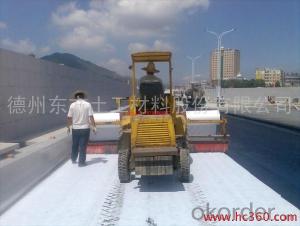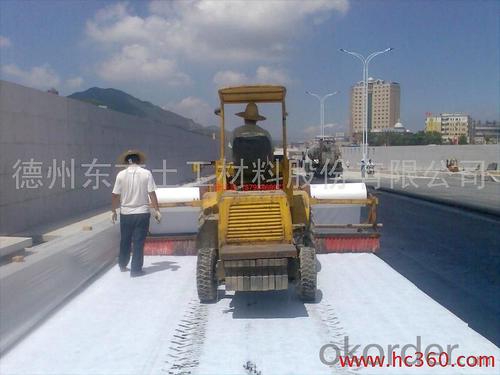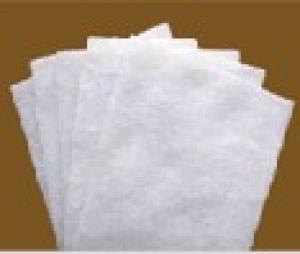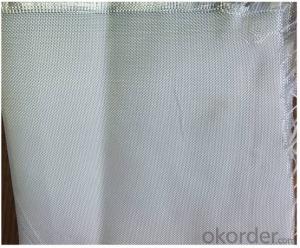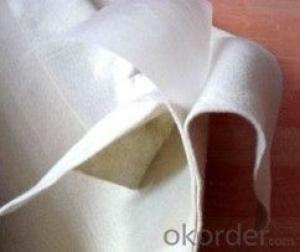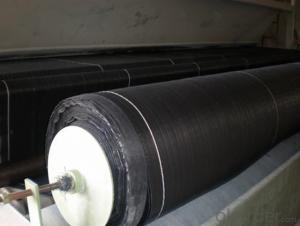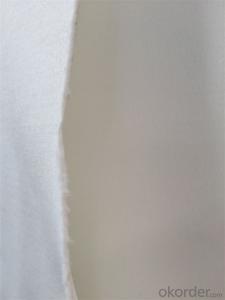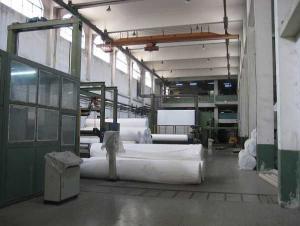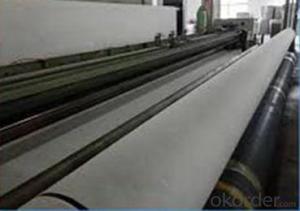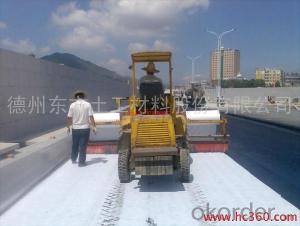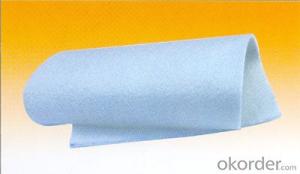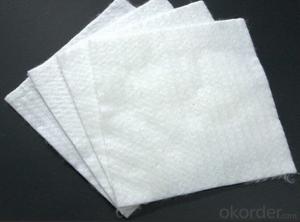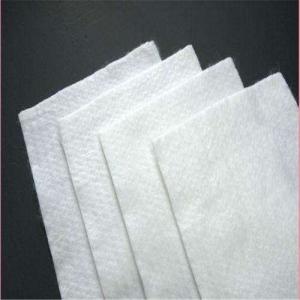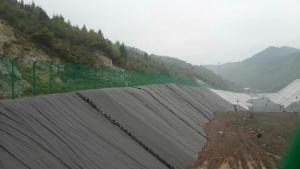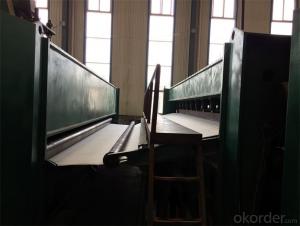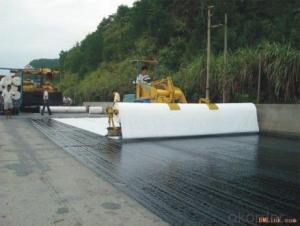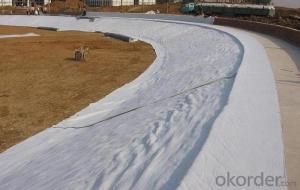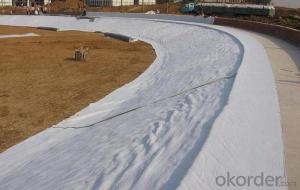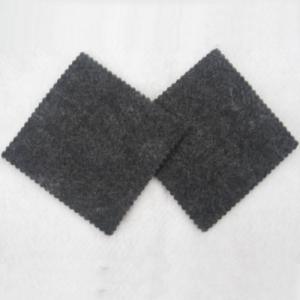Geotextile Driveway Non Woven Needle Punched Polyester Geotextile for Road Construction
- Loading Port:
- Qingdao
- Payment Terms:
- TT OR LC
- Min Order Qty:
- 10000 m²
- Supply Capability:
- 500000 m²/month
OKorder Service Pledge
OKorder Financial Service
You Might Also Like
Non Woven Needle Punched Polyester Geotextile Images
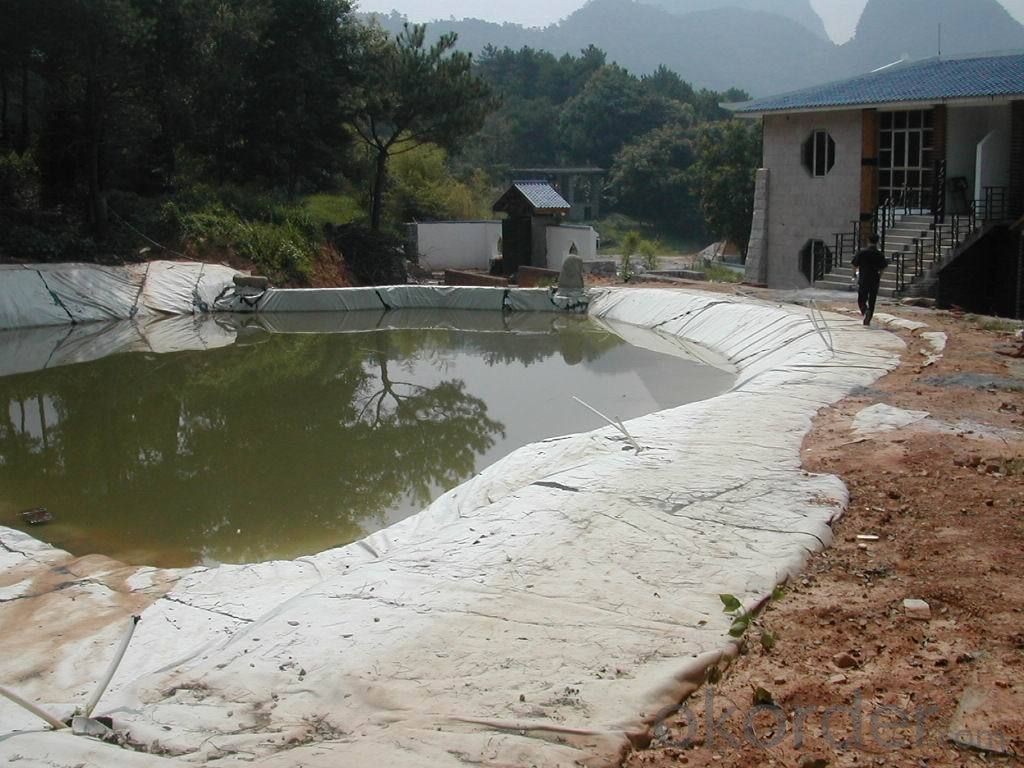
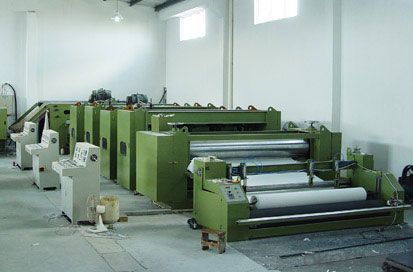
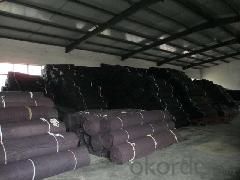
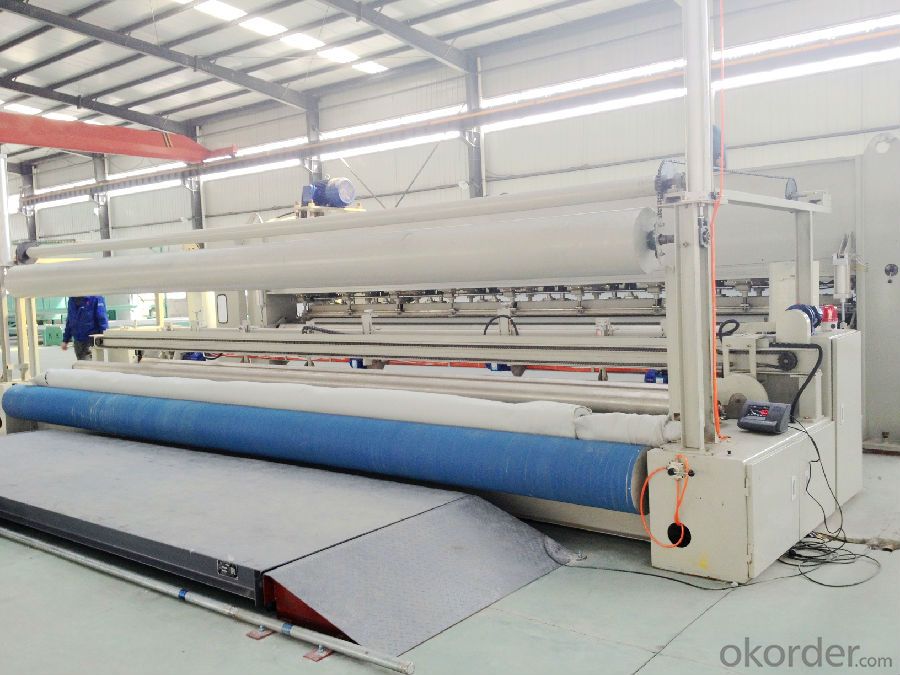
Non Woven Needle Punched Polyester Geotextile Specification:
item | unit | Requirement data | ||||||||||
Mass per square meter | g/m2 | 100 | 150 | 200 | 250 | 300 | 350 | 400 | 450 | 500 | 600 | 800 |
Thickness | mm | 0.9 | 1.3 | 1.7 | 2.1 | 2.4 | 2.7 | 3.0 | 3.3 | 3.6 | 4.1 | 5.0 |
Tensile at break | KN/M | 2.5 | 4.5 | 6.5 | 8.0 | 9.5 | 11.0 | 12.5 | 14.0 | 16.0 | 19.0 | 25.0 |
Tear strength | KN≥ | 0.08 | 0.12 | 0.16 | 0.20 | 0.24 | 0.28 | 0.33 | 0.38 | 0.42 | 0.46 | 0.60 |
Elongation at break | % | 91 | 89 | 88 | 85 | 75 | 60 | 65 | 57 | 59 | 61 | 59 |
CBR | KN≥ | 0.3 | 0.6 | 0.9 | 1.2 | 1.5 | 1.8 | 2.1 | 2.4 | 2.7 | 3.2 | 4.0 |
Pore size microns | mm | 0.15 | 0.14 | 0.13 | 0.12 | 0.11 | 0.10 | 0.09 | 0.08 | 0.08 | 0.07 | 0.07 |
Flow rate | mm | Kx (10-1-10-3) | ||||||||||
FAQ
We have organized several common questions for our clients,may help you sincerely:
Q1: How about your company?
A1:Our company are one of the largest geosynthetic products supplier in the world.We have the products experience more than 20 years.Already export to USA/Germeny/Australia/Zambia/Brazil etc.more than 20 countries.Almost 10years.Our products including Geocell/Fiberglass Geogrid/Geomembrane/Geotextile/Geonet etc.
Q2:Can you send samples to us ?
A2:Yes , free samples could be provided , but customer need pay for the freight cost .
After order placed , the freight charge could be refund .
Q3:What’s your Payment term ?
A3:T/T , L/C , Western Union,Paypal ...
Q4:What’s your manufacture process time ?
A4:Usually within 20 days
- Q: Are geotextiles suitable for use in underground drainage systems?
- Yes, geotextiles are suitable for use in underground drainage systems. Geotextiles are designed to provide filtration, separation, and reinforcement in various civil engineering applications, including drainage systems. They can help prevent soil and fine particles from clogging the drainage pipes, while allowing water to pass through freely. Geotextiles also enhance the overall performance and longevity of the drainage system by reducing soil movement and erosion.
- Q: What are the different geotextile manufacturing processes?
- There are several different geotextile manufacturing processes, including needle punching, thermal bonding, spunbonding, and weaving. Each process has its own advantages and is used depending on the desired properties and applications of the geotextile. Needle punching involves mechanically interlocking fibers, thermal bonding uses heat to bond fibers together, spunbonding creates a nonwoven fabric through extrusion and stretching, and weaving involves interlacing yarns to create a fabric. These processes allow for the production of geotextiles with various strengths, permeabilities, and filtration capabilities, making them suitable for a wide range of civil engineering and environmental applications.
- Q: What is the meaning of the geotextile What is its working principle
- Hot geotextile cloth is to isolate the heat and cover a layer of geotextile material. Advantages: light weight, the overall continuity is good, high tensile strength, corrosion resistance, anti-microbial erosion is good, easy construction. Non-woven geotextile properties: small pore diameter, good permeability, soft texture, and soil with a good combination. 2, construction (1) according to the embankment or base wide full section laying. (2) leave sufficient anchorage length on each side of the embankment or substrate. (3) To ensure integrity, when the lap method is continuous, the lap length should be 0.3 ~ 0.5m. When the seam is connected, the bond width is not less than 50mm. (4) site construction, material damage must be immediately repaired. Upper and lower seams should be alternately staggered, staggered length of not less than 0.5m. (5) try to avoid prolonged exposure.
- Q: How do geotextiles help with reinforcement of geosynthetic tubes?
- Geotextiles help with the reinforcement of geosynthetic tubes by providing additional strength and stability to the structure. They act as a barrier between the soil and the tube, preventing soil intrusion and enhancing the tube's durability. Geotextiles also distribute the load more evenly, reducing the stress on the tube and preventing deformation or failure.
- Q: Geotextile vertical and horizontal stretching the gap is too much how to adjust
- Geotextile longitudinal and horizontal tensile strength of the gap adjustment, mainly in the carding, laying the net, drawing three links to control, sort out the ratio of Daofu regulation, shop layer, shop curtain speed ratio, Sticks, input and output differences, and so are the cause of a huge gap, the other fiber curl, and so is the key. For the above adjustment, you will find the law. In order to geotextile stretch the vertical and horizontal adjustment equal.
- Q: How are geotextiles manufactured?
- Geotextiles are manufactured through a variety of processes involving synthetic fibers such as polyester or polypropylene. These fibers are first extruded into long filaments or spun into yarns. Then, they are woven or non-woven into a fabric-like structure using specialized machinery. The resulting geotextiles can be further treated with additives for increased durability or specific functionalities.
- Q: Can geotextiles be used in shoreline erosion control projects?
- Yes, geotextiles can be effectively used in shoreline erosion control projects. Geotextiles are permeable fabrics that can be installed along shorelines to stabilize the soil and prevent erosion caused by waves and currents. They can be used as a layer to separate the soil from the water, allowing for water filtration while reducing soil erosion.
- Q: What are the applications of geotextiles in landscaping?
- Geotextiles have several applications in landscaping, including erosion control, soil stabilization, and weed suppression. They are commonly used to prevent soil erosion on slopes by providing a stable base for plants and preventing the loss of topsoil. Geotextiles also help to stabilize the soil by distributing the weight of heavy objects, such as rocks or pavers, and preventing them from sinking into the ground. Additionally, they can be used as a barrier to prevent weed growth, reducing the need for herbicides and manual weeding.
- Q: How do geotextiles improve the performance of pavements?
- Geotextiles improve the performance of pavements by providing reinforcement, stabilization, and filtration. They enhance the strength and load-bearing capacity of the pavement by distributing the applied load more evenly, reducing the likelihood of rutting and cracking. Geotextiles also prevent the intermixing of different layers of pavement materials, maintaining the integrity of the structure. Additionally, they promote drainage and filtration, preventing the accumulation of water and reducing the risk of damage caused by moisture.
- Q: Are geotextiles suitable for use in coastal erosion control?
- Yes, geotextiles are suitable for use in coastal erosion control. Geotextiles are commonly used in coastal areas to stabilize the soil, prevent erosion, and protect the coastline from wave action. They are effective in reducing soil erosion by filtering sediment and allowing water to permeate through while preventing the loss of soil particles. Geotextiles also provide protection against storm surge and tidal forces, making them a valuable tool in coastal erosion control efforts.
Send your message to us
Geotextile Driveway Non Woven Needle Punched Polyester Geotextile for Road Construction
- Loading Port:
- Qingdao
- Payment Terms:
- TT OR LC
- Min Order Qty:
- 10000 m²
- Supply Capability:
- 500000 m²/month
OKorder Service Pledge
OKorder Financial Service
Similar products
Hot products
Hot Searches
Related keywords
